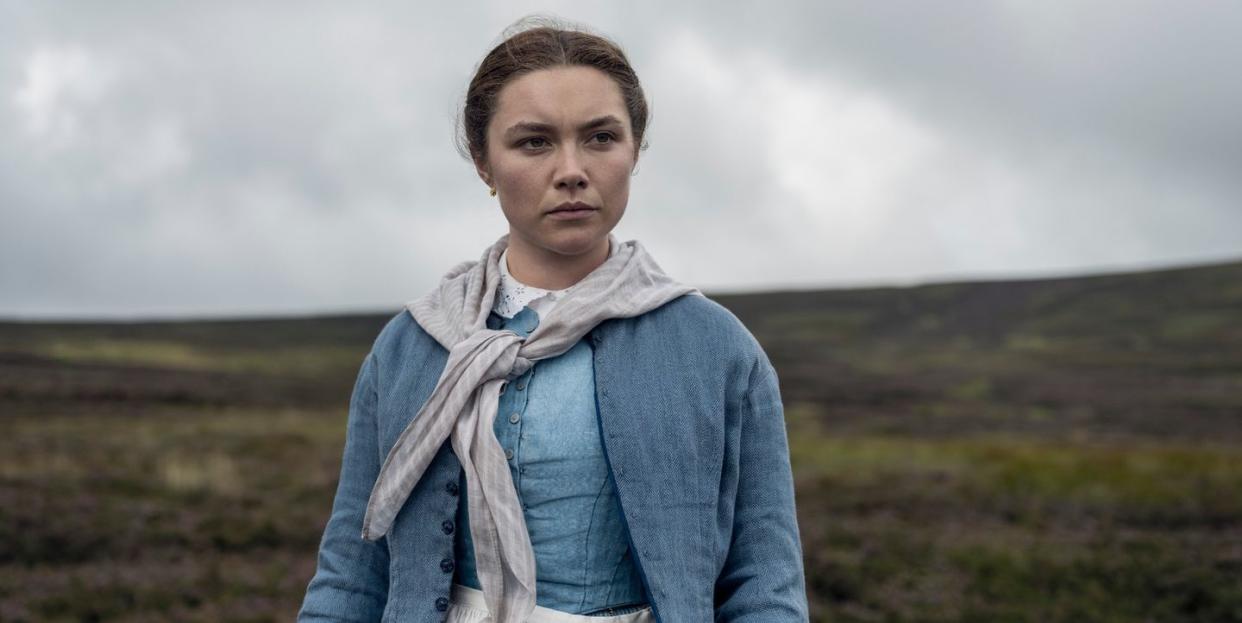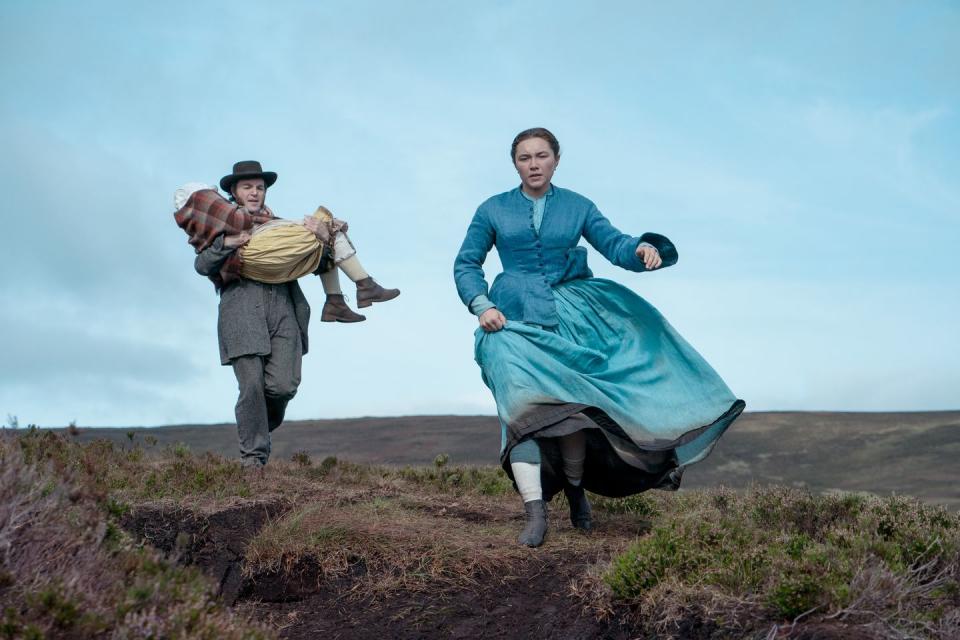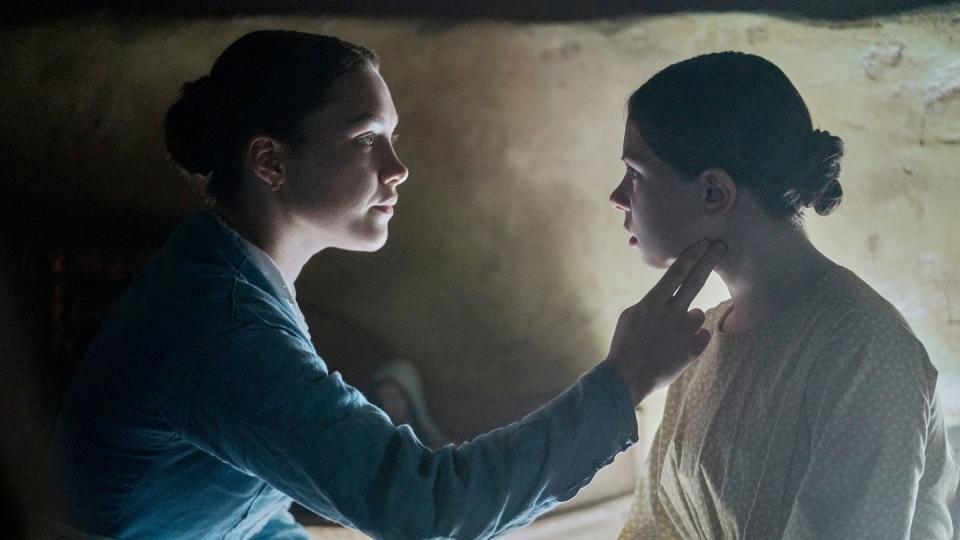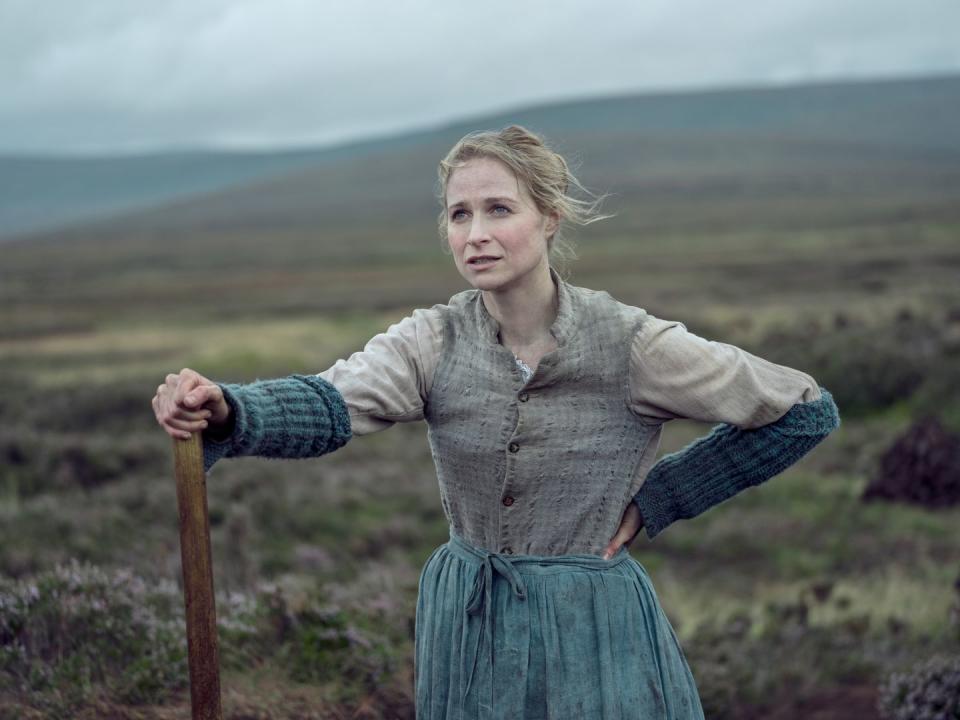Florence Pugh's Netflix movie The Wonder doesn't live up to its name

The Wonder is a strange kind of film — its title hints at a spectacle of awe-inspiring amazement, and certainly its cast is up to the challenge, even if the film as a whole isn't. Set in 1862, it stars Florence Pugh as an English nurse named Lib Wright who takes a temporary job in the Irish Midlands to observe an 11-year-old girl who has, supposedly, survived without food for months.
Set against a bleak and beautiful Irish backdrop, the tensions of class, nationality, gender, faith and love roil underneath a stoicism that doesn't quite match the title. No one actually seems particularly in awe of the young girl who – in a time when people are quite literally starving to death – is surviving on nothing at all.
Lib's indifference is understandable: she's suspicious of this miracle girl, though can't quite put her finger on what's at play. She faces other immediate obstacles, from the council of clergymen who refuse to disbelieve, to her own internal grief that threatens to unmoor her.

If anything is a wonder in this film, it's Pugh's talent – even though it shouldn't be. Time and time again she proves to be a nimble actress, not exactly chameleon-like but dexterous enough at melting into her roles that she brings forth depths of humanity so layered and complex that you believe she really is all these people.
Unfortunately, the film can't quite meet her level. Anna, played by Kíla Lord Cassidy, is docile and sweet but is mostly a sounding board for Lib's own journey — where she ends up, we won't tell, but it isn't so much of a surprise as it is a relief. Lib's allies are few and far between, which makes the slow burn of trust between Lib and Anna feel tenuous and precious.
Anna's parents (Elaine Cassidy and Caolán Byrne) have complicated motivations, which we won't reveal in this review. They don't take money from the visitors who come to marvel at their daughter, nor do they seem to want to publicise her miracle, and so their hostility towards and suspicion of Lib – though potent and understandable – feels muddied in motivation.
Even once the truth is revealed, it isn't the shoe-drop moment you've been waiting for.

If this was meant to be a commentary on the complicated nature of parenthood and faith, it's never expressed explicitly enough. The metaphor that becomes apparent of the bond between mother and daughter doesn't quite pin down the motivation either, leaving a confusion that's hard to shake.
Also outperforming the confines of the film is Niamh Algar as Kitty, the O'Donnells' housekeeper/maid and self-appointed protector of the family and, in her own way, Ireland. Her mistrust of Lib and everything she represents has a clear and purposeful seed, and it's fascinating to watch her throw daggers with her eyes, or with a few barbed words, and it makes you wish she had more to do.

Likewise, Tom Burke gives a well-crafted turn in the supporting role of journalist William Byrne, an Irish native who has since emigrated to England and whose return home brings him face-to-face with his own demons. His relationship with Lib is symbiotic in more ways than one, and theirs is the more compelling dynamic than Lib and Anna's, to the disservice of the plot.
There's a jerkiness to the pacing, like a manual car in the hands of someone who hasn't quite mastered a stick shift, that jolts you out of one scene and into the next without the kind of ease that a film of this atmosphere requires. The Wonder's style can't quite match the substance it craves, that Pugh and Algar, in particular, are so desperate to get to.
In the end, the film, like Anna herself, is an anaemic facsimile, lacking in the mysticism and, yes, wonder that it needs to be a truly compelling story.
The Wonder is out now on Netflix
You Might Also Like

 Yahoo Movies
Yahoo Movies 
